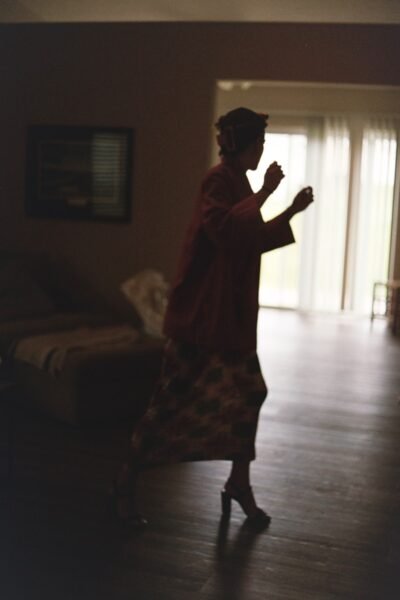There’s a growing trend across online spaces where people—especially younger adults—discuss estrangement from parents as if it’s a simple math equatio
There’s a growing trend across online spaces where people—especially younger adults—discuss estrangement from parents as if it’s a simple math equation:
If a relationship with a parent is fractured, it must be the parent’s fault. Simple math, right?
If there’s distance, it must be because of “bad parenting.”

Photo by Sam Burke
But life, love, and trauma are far more complex than that.
Estrangement is not one-size-fits-all.
Sometimes it’s the result of harm.
Sometimes it’s the result of boundaries.
And sometimes—though few dare say it—it’s the result of manipulation, greed, or abuse directed at the parent.
The Silence Around Parricide
When adult children kill their parents, society scrambles to make sense of it.
We label the cases as “unthinkable.” We search for explanations in mental illness, substance abuse, or temporary rage.
But we rarely take a deeper look at the growing disrespect and dehumanization of elders that can precede such tragedies.
Parricide—the killing of one’s parent—exists on a spectrum of violence that too few people want to face.
Most parents who are mistreated by adult children will never experience physical harm.
But some will live through patterns that mirror intimate partner abuse:
Financial exploitation disguised as “helping out.”
Verbal and emotional attacks that wear away at dignity.
Entitlement and control, where love is weaponized for access or advantage.
Isolation, where parents are punished for asking for fairness or respect.
These parents stay silent for the same reason many Survivors of relationship violence do—because love blinds them to danger, because shame silences them, or because they hope things will change.
Elder Abuse Is Not Rare — It’s Ignored
For decades, advocates have warned that elder abuse is an underreported crisis.
Many parents endure theft, coercion, and neglect at the hands of those they once cradled.
And when it turns deadly, the public’s sympathy often swings toward the younger generation—especially if the parent is framed as “toxic.”
But not all stories fit that narrative.
There are shades of gray that deserve attention.
There are victims who raised their children with care and still found themselves living in fear of them.
There are parents who gave, sacrificed, forgave—and were met with cruelty or callousness in return.
It’s time we start talking honestly about these dynamics.
We cannot keep romanticizing “cutting people off” as a one-directional story of liberation without acknowledging the potential for power, control, and abuse in the opposite direction.
Why This Matters for Survivor Communities
When we frame estrangement only as a parent’s failure, we:
Silence victims of elder abuse who need our help.
Reinforce stereotypes that only “young people” are harmed in family systems.
Dismiss the grief of parents who love deeply yet live with pain and fear.
Erase the reality that anyone—regardless of age—can become a target of coercive control.
The same patterns we fight against when women are harmed by partners—control, entitlement, financial exploitation, emotional cruelty—can and do appear between adult children and parents.
Recognizing this doesn’t take away from the pain of those with truly abusive upbringings.
It simply makes space for truth.
Compassion, Accountability, and Caution
Estrangement is sometimes necessary for safety. But public conversations about it often leave no room for compassion toward parents—or for complexity.
Love can be present even when harm exists. Boundaries can coexist with care.
We must hold both truths if we want real healing.
For those of us in advocacy, it’s time to widen our lens.
Protecting elders, parents, and caregivers is not about assigning blame.
It’s about ensuring that no one—no matter their age or role—is erased from the conversation about abuse.
Reflection for Our Readers
Ask yourself:
Do I know someone who might be quietly enduring harm from an adult child or family member?
Have I listened to their story—or dismissed it because it doesn’t fit a trending social narrative?
How can we build a culture where parents and elders are treated with respect, even when boundaries must exist?
Love is not submission.
And silence has never been safety.